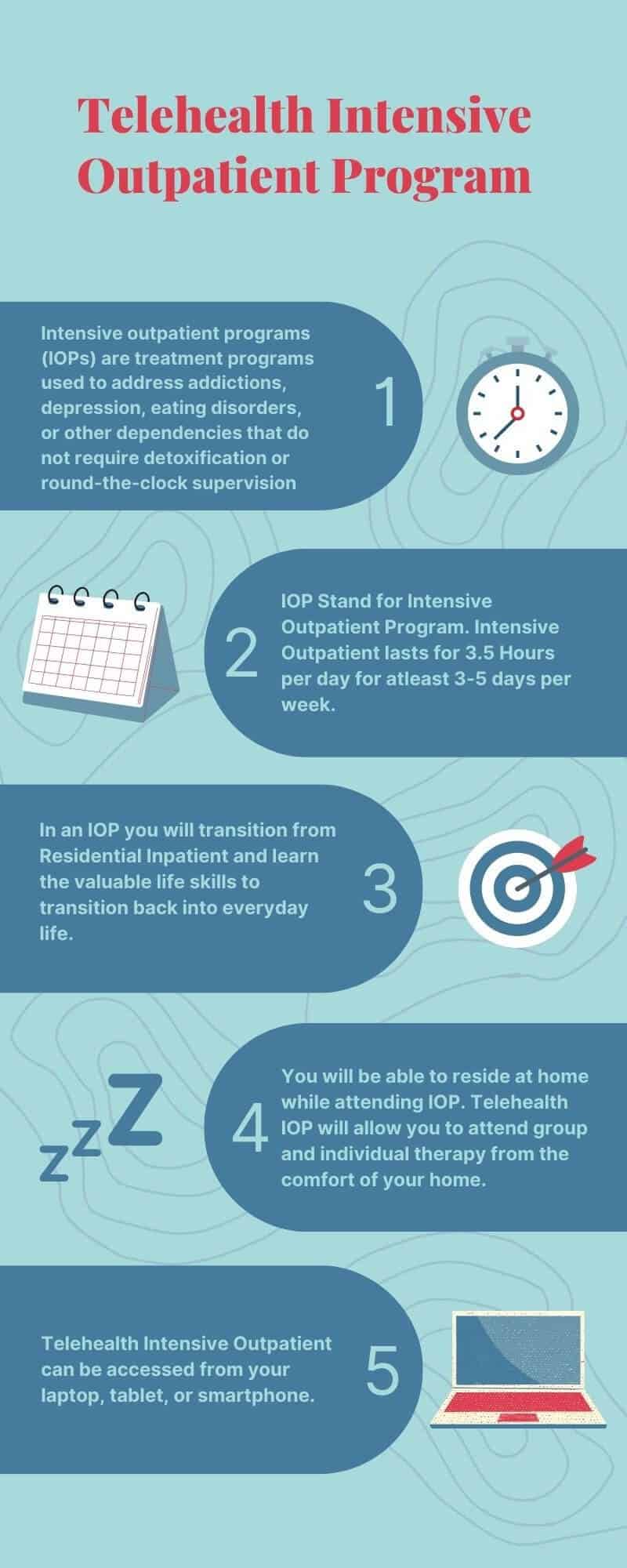Discover the Perks of an Intensive Outpatient Program (IOP) for Recovery
Discover the Perks of an Intensive Outpatient Program (IOP) for Recovery
Blog Article
Navigating the Complexities of Double Medical Diagnosis Treatment Within an Intensive Outpatient Program Setting
In the realm of mental health and wellness and addiction therapy, the intersection of double medical diagnosis presents a nuanced difficulty that requires an extensive and tailored method. By discovering the intricacies of double medical diagnosis treatment within this extensive outpatient context, a more clear path arises towards alternative and lasting recuperation for those grappling with these linked challenges.
Double Diagnosis Review

Recognizing twin medical diagnosis is necessary as it requires an extensive and incorporated technique to treatment. By acknowledging the interaction between compound usage and psychological health and wellness, medical care providers can tailor treatments to meet the distinct requirements of each individual. This holistic method not only addresses signs and symptoms but likewise targets hidden aspects that add to the dual diagnosis.
Moreover, unattended twin medical diagnosis can cause a cycle of regression and worsening mental wellness signs and symptoms. By acknowledging the complexity of twin medical diagnosis and providing customized treatment, medical care experts can support people in achieving long-lasting recovery and enhanced mental health.
Tailored Therapy Strategies
Acknowledging the complex interaction between material use conditions and psychological wellness conditions, the growth of tailored treatment plans is extremely important in addressing the intricacies of twin diagnosis in psychological health and wellness treatment. Tailored treatment plans are personalized techniques that consider the unique requirements, challenges, and goals of individuals encountering dual medical diagnosis. These plans are developed collaboratively by a multidisciplinary team of experts, including psychoanalysts, psycho therapists, social workers, and dependency specialists, to ensure comprehensive and integrated treatment.
Tailored therapy plans typically include a mix of treatments, drugs, and behavioral treatments that target both the compound usage condition and the mental health problem simultaneously. These strategies might include cognitive-behavioral treatment, dialectical behavior modification, medication-assisted therapy, private counseling, team therapy, and household treatment, to name a few evidence-based treatments. By tailoring therapy approaches to individual circumstances, tailored strategies can address the origin of twin medical diagnosis, promote lasting recovery, and boost total lifestyle for individuals struggling with co-occurring problems.
Integrated Care Approach
An integrated care method in dual diagnosis treatment integrates clinical, mental, and social treatments to address the complex needs of people with co-occurring substance use disorders and psychological health and wellness conditions. This method acknowledges that treating one element of a twin diagnosis without resolving the other can result in inadequate outcomes. By incorporating clinical treatments such as drug management for psychological health conditions with psychological therapies like cognitive-behavioral treatment for substance use conditions, people receive detailed treatment that targets all facets of their dual medical diagnosis.
Moreover, you could try these out the social element of incorporated care entails addressing ecological elements that might add to the development or perpetuation of substance usage her explanation and mental health and wellness problems. This can include family members dynamics, real estate instability, or absence of social support. By integrating social treatments like family members therapy, occupation support, and area sources, the treatment becomes extra all natural and customized to the individual's details needs. Overall, an incorporated treatment method in double medical diagnosis therapy within an extensive outpatient program setup aims to supply detailed, effective, and personalized care to people encountering co-occurring disorders.
Challenges in IOP Establishing
In the context of dual diagnosis therapy within an extensive outpatient program, navigating the intricacies of co-occurring material usage problems and mental wellness conditions provides substantial difficulties. Among the primary hurdles in the IOP setting is the coordination of care between mental health and wellness experts and drug abuse specialists to guarantee a thorough therapy strategy. This needs reliable interaction, partnership, and a deep understanding of just how these conditions interact and influence each other.

In addition, attending to stigma and resistance to therapy within the IOP setting can impede progress. Some individuals may be hesitant to divulge their double medical diagnosis or may really feel embarrassed, hindering their engagement in the healing process. Getting rid of these obstacles requires a supportive and non-judgmental setting that promotes depend on and visibility.

Collaborative Specialist Initiatives
Effective double medical diagnosis treatment in an extensive outpatient program necessitates smooth partnership amongst mental health experts and chemical abuse specialists to make certain a detailed and integrated method to care (Intensive Outpatient Program (IOP)). This partnership is important to resolve the complicated interplay between psychological health and wellness problems and chemical abuse, as both facets need to be treated concurrently for effective end results. Mental health and wellness experts bring competence in identifying and dealing with mental wellness problems, while drug abuse specialists have specialized knowledge in addressing dependency problems. By functioning with each other, these specialists can develop personalized treatment strategies that satisfy the special requirements of each individual, thinking about both their psychological health and wellness and drug abuse challenges.
Collaborative efforts additionally prolong to regular interaction and information sharing among team participants to make certain a natural therapy approach. Eventually, a united front of professionals working together boosts the effectiveness of twin diagnosis treatment within an intensive outpatient program.
Verdict
In verdict, reliable twin diagnosis treatment within an extensive outpatient program setting calls for customized therapy plans and an incorporated care method. Obstacles may emerge in this setting, yet collaborative initiatives among professionals can aid browse these intricacies. By dealing with the special requirements of individuals with co-occurring mental health and wellness and material utilize conditions, IOP programs can provide comprehensive and all natural care to support recovery and total wellness.
Report this page